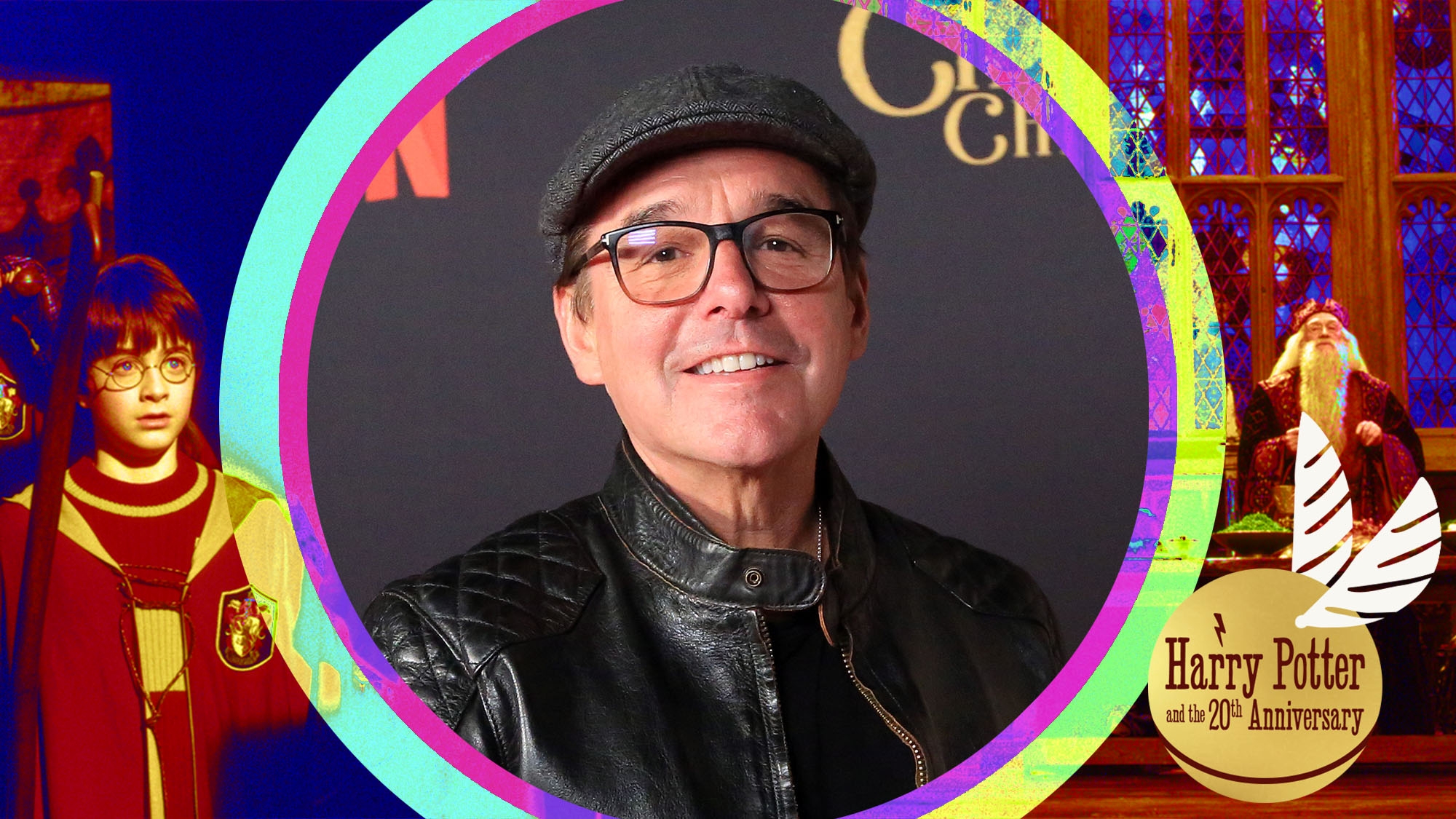Chris Columbus on how he convinced Alan Rickman to enter the Potterverse
The director of Harry Potter And The Sorcerer's Stone takes us inside the creation of the Great Hall and more

20 years ago, Harry Potter And The Sorcerer’s Stone was released in theaters. It was a big deal at the time. Dozens of directors had sought the job, with Steven Spielberg even being initially attached. The first movie in what was assumed to be a series, Sorcerer’s Stone was an adaptation of one of the most popular children’s books in years, so the movie was almost certainly guaranteed to be a success.
And what a success it was, grossing over a billion dollars at the box office to date. We talked to the film’s director, Home Alone and Mrs. Doubtfire veteran Chris Columbus, about how he landed the gig, convinced some of Britain’s best character actors to join him, and the first time he saw Hogwarts’ Great Hall.
The A.V. Club: You went after the job of directing the Harry Potter movies pretty fiercely, and it was a hotly contested job. What made you want the gig so badly?
Chris Columbus: My daughter had pestered me to read the books for a couple of years and I didn’t. When I sat down and read the first three books, I saw the film in my head and I said, “I have to make this film. “
I called my agent and said, “I want to direct the first Harry Potter film.” She said. “You and 30 other people.” So I didn’t know how I was going to get the job. I said to my agent, “Make sure that I’m the last meeting.” In other words, after all the other directors have been interviewed, I want to be the last guy in the room.
It was about 10 days before I went in, and I took those 10 days and took the script and basically rewrote it. Steve Kloves wrote a brilliant script, but I wrote a director’s version so I filled it with tone, how I was going to move the camera, and what the sets were going to look like.
I went into the Warner Brothers meeting and basically put the script on the table and said, “Look, I’ve rewritten this for you for free”—which nobody does in Hollywood, by the way. I said, “Keep it. I don’t want to get paid for it. I just want you to see what I would do with the movie.”
I think that was probably the thing that got me the the gig.
AVC: From what I’ve read, you also made the commitment to essentially using a purely British cast. Do you think that helped as well?
CC: It did.
It’s interesting because I luckily said all the right things to Jo Rowling in our first interview. First, I explained how I was going to shoot the film and how it was going to look, and she said, “That’s exactly the same way I see it.”
I also said the cast should be entirely British. I mean, my own daughter is in the movie. She plays Susan Bones. She was 11. She’s in 60 or 70 days of the first movie and the same in the second movie. She didn’t utter a word because she’s not British, so we we stuck to our guns in that respect.
These days, now everybody from London is coming over and doing television shows with an American accent, so maybe I’d be a little more open today.
AVC: Did you think at all about how you were setting up the whole series, in terms of how, when you’re building that hall based on what you see in that book, that’s pretty much what it’s going to have to look like if you make another movie? Just setting the visual tone of the series?
CC: Yeah, because at the time I thought I would be directing all seven, not having realized how exhausting directing the first two would be—physically, mentally, not seeing my family.
At the same time, I knew that I had to create these sets along with my production designer and my art director that would stand the test of time. I also had seen the way I thought these sets should look in my own head. So with the help of great illustrators and great people, we were able to bring the world to life.
I knew after I walked into the Great Hall the first time. I thought, “Oh, this can definitely last for seven movies. This is classic. It’s timeless,” and that’s the way we approached making the entire first film.
AVC: I love Alan Rickman as Snape, and we have since lost him. What do you remember about about him embodying that role and working with him?
CC: I remember [producer] David Heyman and myself had to do the British actor’s dinner tour for quite some time. We went out to dinner with Richard Harris to convince him, and Maggie Smith to convince her. Alan Rickman was the same, and he was reluctant because he didn’t want to be typecast as a villain, particularly after Die Hard, and I guess Robin Hood [Prince Of Thieves].
We convinced him to do it, and then J.K. Rowling took him out to dinner and told him something about what was going to happen to Snape throughout the series and in the seventh book.
So when we would be on set, he would do these tiny little idiosyncrasies with his performance, and I couldn’t figure out where it was coming from. I’d walk up to him afterwards and say, “What was that?” He would say, “Oh, you’ll know when you read the seventh book.” It was like, “Well, yeah, but that doesn’t help me now. I’m directing the first movie.”
Once I read the seventh book, though, I thought, “Oh, that was brilliant, his choice.”